
Ben Kentish 10pm - 1am
11 July 2023, 13:23
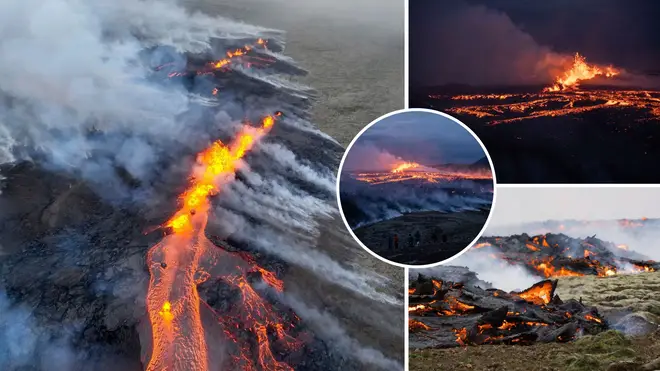
A volcano has erupted just 20 miles from Iceland's main airport, prompting warnings for "life-threatening toxic gas pollution".
Authorities in Iceland warned tourists to stay away from the volcano after it began spewing lava and toxic gases.
The eruption began on Monday afternoon after thousands of earthquakes in the area. It comes 11 months after the volcano's last eruption officially ended.
People have been urged to stay away from the valley near the Litli-Hrutur mountain, which is just 19 miles south west of the capital, Reykjavik.
The Fagradalsfjall volcano erupted in 2021 and 2022 without causing damage or disruptions to flights, despite being near Keflavik Airport. The airport remained open on Tuesday.
Read more: 'Cerberus' heatwave brings searing temperatures to Europe with Italy set to surpass highs of 45C
Read more: Home Office admits to spending £500,000 a day on empty hotel beds for migrants
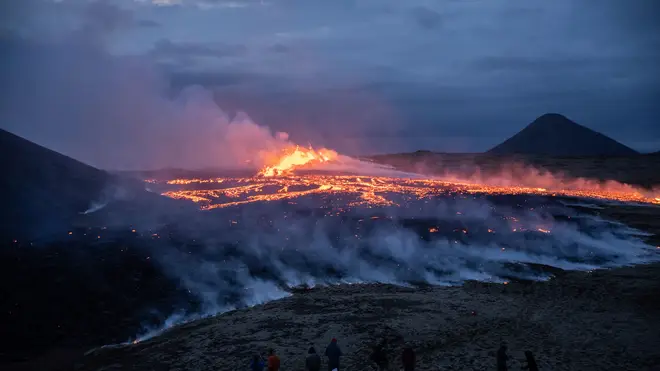
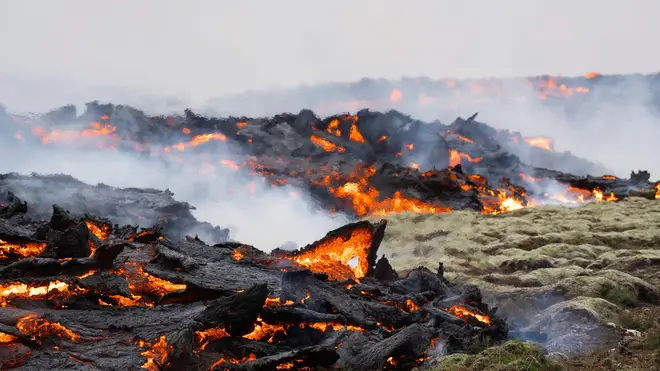
The eruption was initially more explosive than the previous two, the Icelandic Meteorological Office said.
Aerial footage showed streams of orange molten lava and clouds of gases spewing from a snaking fissure about half a mile long.
"Gas pollution is high around the eruption and dangerous," the Met Office said.
"Travellers are advised not to enter the area until responders have had a chance to evaluate conditions."
The department of civil protection and emergency management said on Monday night: "The police, after counsel from scientists, have decided to restrict access to the eruption site due to enormous and life-threatening toxic gas pollution.
"For the next hours, it is highly likely that gas will build up around the eruption site due to low wind.
"Those who have already undertaken the hike to the eruption site, or are already there, are strongly advised to leave the area."

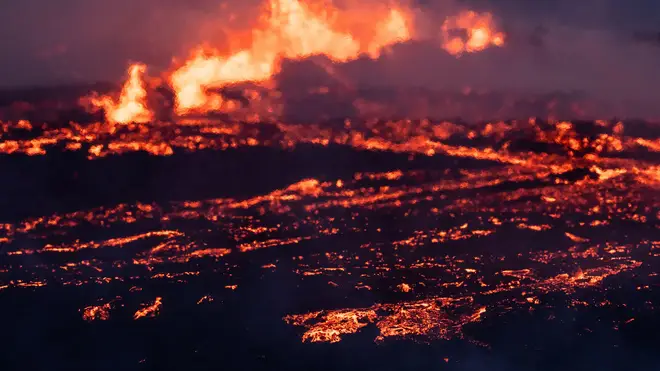
By Tuesday morning, the fissure and the volume of the eruption had shrunk, scientists said.
"This has become a small eruption, which is very good news," University of Iceland geophysics professor Magnus Tumi Guomundsson told local broadcaster RUV.
He said the eruption could "certainly last a long time, but luckily we're not looking at a continuation of what we saw in the first few hours".
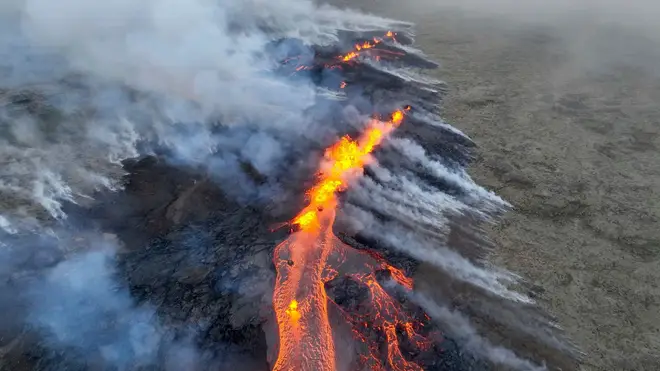
The 2021 eruption in the same area produced lava flows for several months and hundreds of thousands of people flocked to see the sight.
Iceland, which sits above a volcanic hotspot in the North Atlantic, averages an eruption every four to five years.
The most disruptive eruption in recent times was of the Eyjafjallajokull volcano in 2010, which sent huge clouds of ash into the atmosphere and led to widespread airspace closures over Europe.
More than 100,000 flights were grounded, stranding millions of international travellers and halting air travel for days because of concerns the ash could damage jet engines.